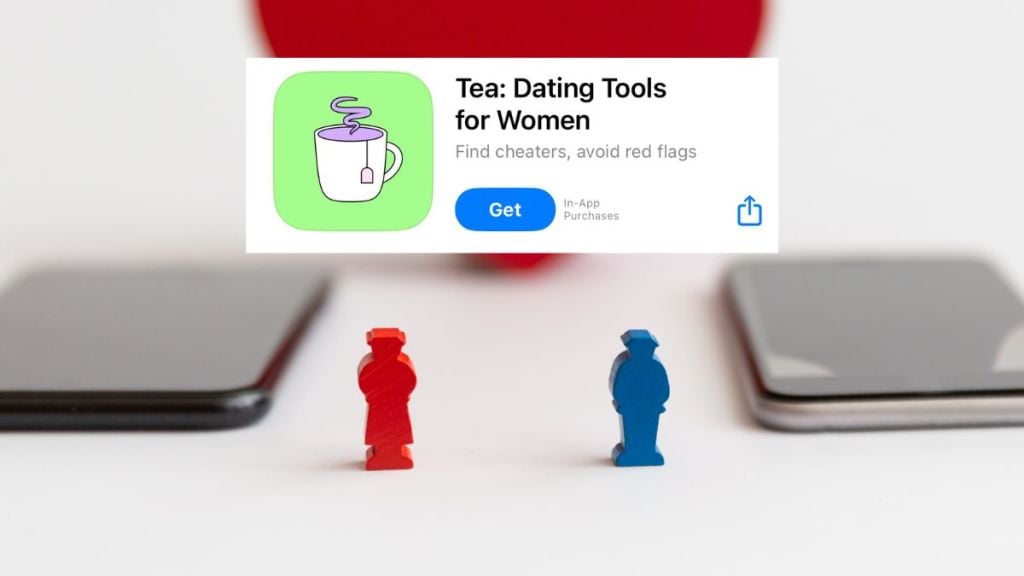Modern dating took a new spin when ‘Tea’ entered the chat. A women-only space that provides “dating tools” and helps “avoid red flags”. Among the top-ranked apps on the App Store in United States, this application has stirred an array of internet reactions. While some drew parallels to old-school Facebook groups, others supported the idea with enthusiasm
The description of the app reads “Find cheaters, avoid red flags”. On the App Store, promotional content attracts users with features like “get the tea on your date and avoid dating red flag men”. Aimed at anonymity of opinion and safety of the seekers, this women-only app was a notch above other groups on social media.
What is ‘Tea’ App?
An app created for women to exchange notes on their love interests can potentially change the use of dating apps. Building an anonymous community of women, the app allows the user to share details, ask for opinions and even notify every time the name of the partner is “mentioned in the area”.
The official description read, ” Users can access a nationwide forum of posts and can set alerts for a man’s name so you never miss any tea about
your potential date, ex, or partner, and so you can make sure they are not a cheater. Users can anonymously ask for dating and relationship advice to find support and empowerment from our community of verified women.”
Netizens recall ‘Don’t Date Him, Girl’
In the depths of a Reddit thread was a user who was reminded of an app that used to exist earlier called ‘Don’t Date Him, Girl’, “it essentially did the same thing”, they wrote.
Relics of the social media past also recalled a popular group on Facebook called ‘Did we date the same guy?’ which is reportedly still active among the generation. On a serious note, a user had a dystopian hope of warning women of men with violent tendencies. “It would save a lot of women from SA and abuse cuz so many dudes act like this then it comes out they have a trail of victims behind them yet we can’t talk openly about it.”
Discussions about the app brought up the infamous man vs bear debate and how the internet collectively agreed that women tend to feel safer with an untamed man-eating wild animal than a male stranger.
What about Gen-Z?
In contemporary discourse, gender is increasingly understood as a social construct, and fluidity is more commonly recognised among Gen-Z. An app that categorises individuals strictly within a heterosexual framework as “women” may therefore raise concerns about inclusivity. By reinforcing the stereotype that heterosexual women primarily engage in conversations about “man problems,” such an approach could be viewed as counterproductive to broader efforts toward progress. However, given the persistence of gender-based violence and patriarchal structures, an app like Tea may still serve a practical role in helping women navigate and avoid potentially harmful situations.


